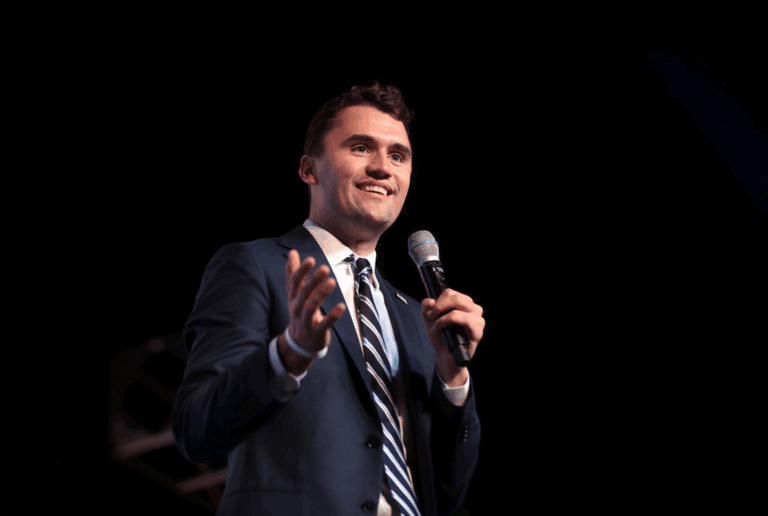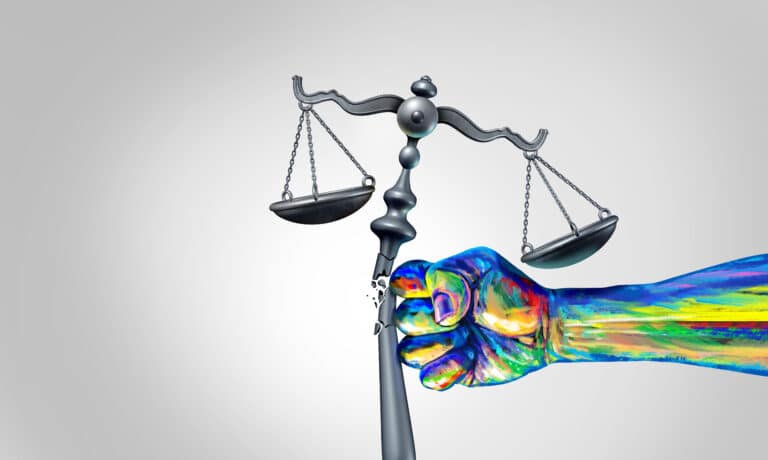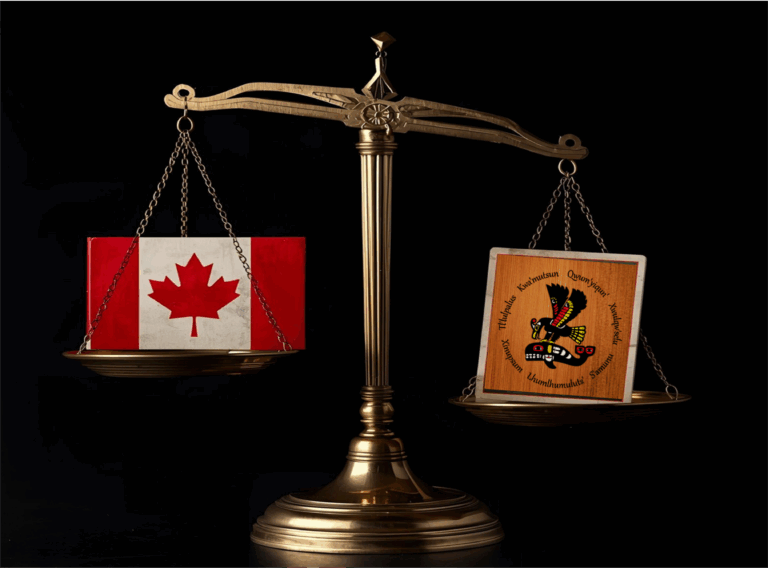On January 29, 2022, a small convoy of trucks headed down to the U.S. border crossing at Coutts, Alberta to join in the nationwide protests against the Covid-19 vaccine mandate that the Justin Trudeau government had recently imposed on cross-border truckers – the very people Trudeau had previously described as “heroes” for delivering food and other essentials in the depths of the pandemic. Joined by many locals in pickup trucks and farm machinery, the truckers’ border protest turned into a full-scale blockade that would last 17 days. Just as it appeared to be settling into an extended stalemate, heavily armed police tactical teams swooped down upon several locations and arrested 14 protesters, charging four with the ominous crimes of conspiracy to commit murder (of police officers), mischief, a raft of weapons offences and uttering threats. These were bewildering accusations given the overall context of the event.
As the blockade almost instantly dissolved given that none of the protesters wanted to be linked to potentially violent offenders, the four men – Chris Lysak, Jerry Morin, Chris Carbert and Tony Olienick – were locked away. Lysak and Morin spent 723 days – nearly two years – in pre-trial custody, 74 of which Morin was kept in solitary confinement. Finally, after their new lawyer, Daniel Song, filed a Charter of Rights and Freedoms application demanding that the courts re-examine the case, the Crown suddenly accepted a plea deal on much lesser firearms charges. One month ago – on February 6 – Morin and Lysak were abruptly released. But they had already served the equivalent of a typical sentence for a serious crime in Canada – manslaughter or assault, say. Hard-working tradesmen with young families, Morin and Lysak will never get those two years back. Carbert and Olienick remain in prison and still face the full raft of charges; their trial is to begin in May.

Contrast this with the recent case of a mother and daughter – Carolann Robillard and Sara Miller, 11 – who were fatally stabbed in a horrific random attack outside an Edmonton school. Their accused killer, Muorater Arkangelo Mashar, had a long criminal record of assaults, assault with a weapon and robbery; he had been released from custody 18 days prior to the murders. Such events are no longer exceptions in Canada’s criminal justice system. They’re not cases of someone “falling through the cracks” – getting out due to a glitch or individual act of incompetence. They are routine. This is how things are now done in Canada. Vancouver police, for example, catch and release the same criminal offenders over and over, sometimes close to 100 times, because they always make bail.
By contrast, the four Coutts protesters were repeatedly denied bail despite having no criminal records. For this reason, social media users raised the possibility that they were, in effect, political prisoners being persecuted for having stood up so defiantly against the vaccine mandate and embarrassing Trudeau. Just a week or so following their arrests, over 3,000 km away on Parliament Hill, the Trudeau government moved against a peaceful protest that was breaking no significant laws other than, possibly, some municipal noise ordnances and parking bylaws. Police arrested and incarcerated four prominent protesters whom there was no credible basis to imprison and hold without bail. Of the four, Chris Barber was released within a day. Pat King and George Billings, however, were denied bail despite facing only minor mischief charges; they would spend months in jail. Billings eventually pled guilty to one charge and was released, while King’s trial has yet to begin.
 Political prisoners? At the Freedom Convoy protest in Ottawa (top), police arrested (bottom left to right) Chris Barber, Pat King and George Billings; Barber was released but King and Billings were denied bail despite facing only minor mischief charges. (Sources of photos: (top) Maksim Sokolov (Maxergon), licensed under CC BY-SA 4.0; (bottom left) Public Order Emergency Commission; (bottom middle) Calgary Herald; (bottom right) The South Peace News)
Political prisoners? At the Freedom Convoy protest in Ottawa (top), police arrested (bottom left to right) Chris Barber, Pat King and George Billings; Barber was released but King and Billings were denied bail despite facing only minor mischief charges. (Sources of photos: (top) Maksim Sokolov (Maxergon), licensed under CC BY-SA 4.0; (bottom left) Public Order Emergency Commission; (bottom middle) Calgary Herald; (bottom right) The South Peace News)The treatment of the fourth prominent protester was especially egregious. The day before police wielding the draconian powers of the federal Emergencies Act moved in to forcibly break up and disperse the Ottawa protesters from Parliament Hill and Wellington Street, they arrested a woman who had journeyed across the country to serve as co-organizer and spokesperson for the protesting truckers. Tamara Lich, a Métis grandmother from Alberta, was criminally charged with “one count each of mischief, intimidation, obstructing a highway and obstructing a police officer, as well as five counts of counselling others to commit those same charges.” It’s hard to imagine how this petite, soft-spoken woman could “obstruct police or intimidate” anyone. Handcuffed between two towering federal police officers, Lich was placed in solitary confinement in a dungeon-like cell with a tiny window 5 metres above her head.
The Criminal Code specifies that bail should be granted with the fewest conditions possible and should consider the person’s background, criminal record and any threat their release might pose to the public. Lich spent two weeks in jail and was then released under strict and stifling bail conditions that went beyond what is typically imposed even on accused bank robbers or murderers.
Section 515 of the Criminal Code of Canada covers Judicial Interim Release – the formal term for bail – and states in part: “…the justice shall, unless a plea of guilty by the accused is accepted, make a release order in respect of that offence, without conditions, unless the prosecutor, having been given a reasonable opportunity to do so, shows cause, in respect of that offence, why the detention of the accused in custody is justified or why an order under any other provision of this section should be made.” The Criminal Code also specifies that bail should be granted with the fewest conditions possible and should consider the person’s background, criminal record and any threat their release might pose to the public.
Lich spent two weeks in jail and was then released under strict and stifling bail conditions that went beyond what is typically imposed even on accused bank robbers or murderers, including a prohibition against using social media and orders not to communicate with anyone associated with the convoy. That summer, the Justice Centre for Constitutional Freedoms selected Lich as the 2022 recipient of its annual George Jonas Freedom Award “in recognition of her outstanding dedication to the cause of freedom.” At the awards ceremony in Toronto, Lich was photographed with another person associated with the convoy. She was then rearrested in Alberta, handcuffed and shackled, and flown back to Ottawa. She spent another 30 days in prison before again being released on bail after a different judge ruled that there had been “no significant interaction” at the awards ceremony – though the judge did not strike any of the oppressive bail conditions themselves.

Around the same time, Randall McKenzie, a habitual offender charged with weapons violations and assaulting a police officer, was set free with no conditions other than periodically reporting to his parole officer. On December 27, 2022, Ontario Provincial Police Constable Greg Pierzchala was murdered in an ambush-style attack; McKenzie and his girlfriend stand accused of the horrific crime. Again, such events now occur with sickening regularity. Just three months previously, habitual violent offender Myles Sanderson went on one of Canada’s worse-ever rampages, stabbing 10 people to death, including his own brother, and wounding another 18 on the James Smith Cree Nation in Saskatchewan. Over the years Sanderson had racked up the impossible-sounding total of 125 criminal charges plus numerous parole violations, but had been again let out because a parole board member deemed he “will not present an undue risk to society.”

In contrast to Mashar, McKenzie, Sanderson and many hundreds of other criminals, it is inconceivable that Tamara Lich could be considered a risk to anyone. She has no criminal record. And under Canada’s warped justice system her Indigenous background should have worked to her advantage in providing even lighter than normal treatment. Lich would probably recoil at asking for such a thing, but the Crown and court are obliged to consider it.
All of that went out the window in Lich’s case, however. In opposing bail at one of her several such hearings, Crown Prosecutor Moiz Karimjee told the judge the government might well seek a prison sentence of 10 years – something never previously imposed in Canada for a mischief charge and fully in keeping with sentences for murder, bank robbery or violent sexual assault. It is difficult to avoid concluding that people in high office wanted the court to teach Lich and the others a lesson – and send a message to dissidents across the country.
Given the facts at hand, given the Prime Minister’s venomous rhetoric against his opponents, given his repeated ethical lapses, and given that he has interfered in at least one prosecution before, it is hard to escape the conclusion that Lich and the others are political prisoners being persecuted at the behest of the Trudeau government.
Whether or not there has been direct political interference, Canada’s justice system is no longer entirely trustworthy. Just two months after the forcible takedown of the Ottawa protests, no less a figure than Richard Wagner, Chief Justice of the Supreme Court of Canada, described the Freedom Convoy protest as “the beginning of anarchy where some people have decided to take other citizens hostage.” It was a grotesque exaggeration, but it wasn’t all that Canada’s highest-ranked impartial jurist had to say. “Forced blows against the state, justice and democratic institutions like the one delivered by protesters,” he declared, “should be denounced with force by all figures of power in the country.” Who outside a dictatorship even talks that way?

Lich’s trial, together with that of convoy co-organizer Barber, finally began last September in the Ontario Court of Justice. It was expected to finish by mid-October but has been taking much longer. After adjourning in December, it resumed in January but was interrupted again after one day. Further hearings are to be held this week. The completion date is uncertain due to limited court time and the tenacious, tireless defence by the formidable Lawrence Greenspon, which appears to have rattled the prosecution.
Tamara Lich, Pat King, George Billings, Chris Lysak, Jerry Morin, Chris Carbert and Tony Olienick have spent a cumulative total of more than 3,200 days in jail – nearly 9 years – and this total will climb further because two of them remain in prison awaiting trial. Meanwhile, Canada’s bail laws continue to allow violent habitual offenders loose after just a few days in custody, while the parole system leaks like a poisonous sieve.
One of the cornerstones separating a democracy from a dictatorship is the prohibition of government interference in the judicial process. But in 2013, the then-aspiring political leader Justin Trudeau stated, “There is a level of admiration I actually have for China[’s]…basic dictatorship.” Even worse, Trudeau named China as the government he admired most in the world. Since then, Canadians have been given reason to believe he meant this literally.

Given the facts at hand, given the Prime Minister’s venomous rhetoric against his opponents, given his repeated ethical lapses, and given that he has interfered in at least one prosecution before, it is hard to escape the conclusion that Lich and the others are political prisoners being persecuted at the behest of the Trudeau government. Whether this is due to key players in the justice system reading the implicit signals and acting accordingly, or due to direct interference, we cannot say – and might never know for sure. Either way, Canadians should be revolted. One thing we do know: news of yet another murder or egregious assault by a violent offender out on bail will come all too soon.
Gwyn Morgan is a retired business leader who was a director of five global corporations.
Source of main image: Shutterstock.





